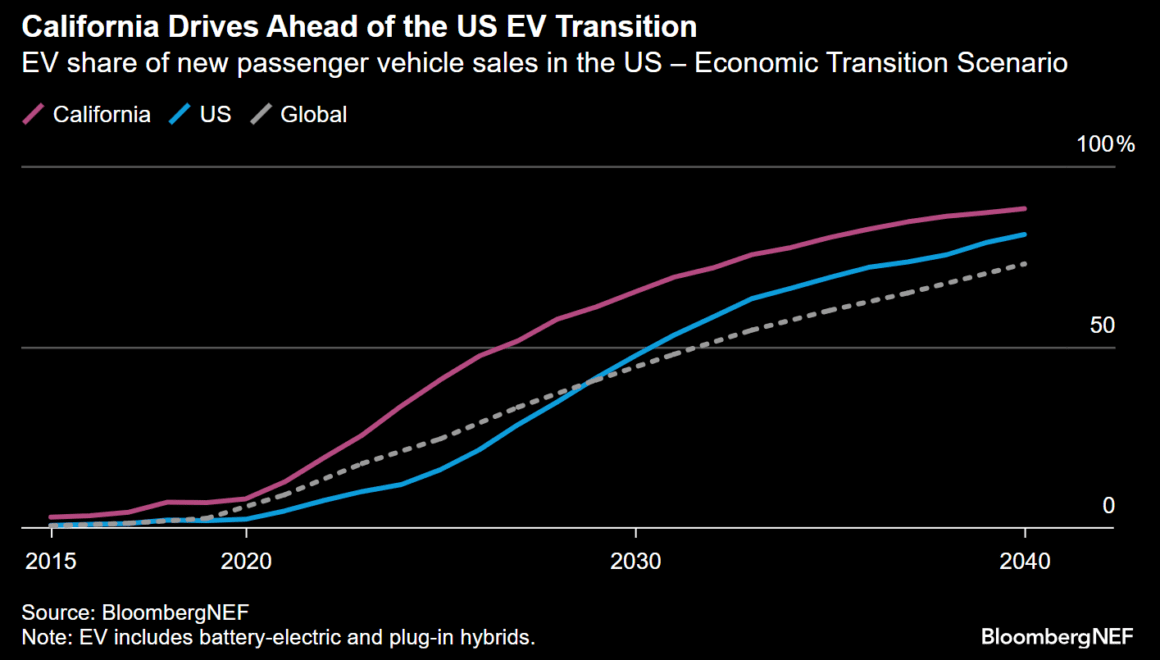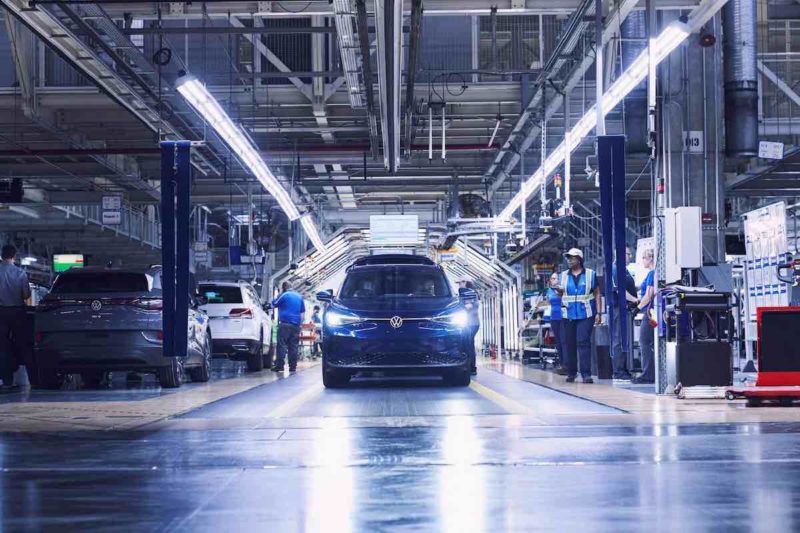A new analysis from energy research organisation BloombergNEF (BNEF) predicts that electric vehicles (EVs) might account for almost a third of new car sales in the US by 2027, although that comes with a significant caveat – current policies must remain in place.
According to BNEF’s latest EV outlook, the current slowdown in US EV sales “may be a mere blip” with modest near-term growth giving way “to a much stronger momentum as new EV models – with many in the ‘affordable category’ – are launched by Ford, Rivian, and Tesla”.
This trend will be further buoyed by an increase in local manufacturing capacity by overseas carmakers like Hyundai, BMW, and Toyota.
BNEF’s forecast predicts US EV sales rising to 4.5 million units by 2027, up from less than 1.5 million in 2023, on track to account for 48 per cent of new passenger vehicle sales by the end of the decade.
Leading the way is California, the increasingly liberal and Democratic bastion of the West Coast.
California is already the United States’ leading market for EVs, thanks to recent purchase incentives, charging infrastructure funding, and forceful fuel economy standard regulations. In 2023 alone, nearly one in four of all vehicles sold in the Golden State were electric, and BNEF expects EVs to account for 65 per cent of all new car sales by 2030, and almost 90 per cent by 2040.

California has also set a phase-out date for internal combustion engine (ICE) vehicles of 2035 – although plug-in hybrids (PHEVs) will remain eligible for 20 per cent of new car sales after that cut-off date.
And while California’s EV push may continue through thick and thin, the same cannot be said for the rest of the country if this year’s presidential election sees Donald Trump returned to the White House.
Much of the current growth in EV sales is due to current president Joe Biden’s target of a 50 per cent EV sales share by 2030. However, much of the work done in fostering local battery and EV manufacturing and incentivising EV purchases will almost certainly be immediately undone if Donald Trump wins a second term.
While pinning Donald Trump down on policy particulars is never easy, Trump reportedly told assembled lawmakers at the Capitol Hill Club in June that “the whole mandate toward battery and electric is crazy” and that “the policy would be entirely reversed.”
A Trump presidency won’t be the end of the road for EVs – just as his first term as president was not the end for renewable energy technologies, as state and non-government actors took up the responsibility to build new capacity. But any hope of meeting the lofty heights of BNEF’s latest EV outlook will require a Democratic presidency – whoever that will end up being.
Joshua S. Hill is a Melbourne-based journalist who has been writing about climate change, clean technology, and electric vehicles for over 15 years. He has been reporting on electric vehicles and clean technologies for Renew Economy and The Driven since 2012. His preferred mode of transport is his feet.

